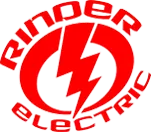Can I Install an EV Charger Myself? DIY vs. Professional Installation Explained
With the emergence of electric vehicles (EVs) comes an increasing demand for practical solutions in charging at home. An EV charger installed at home provides the user with more convenience and charges faster than using standard outlets. However, before leaping into a do-it-yourself (DIY) installation, there is a need to understand the complexity of installation at home and weigh it against hiring a professional.
Understanding EV Charger Installation
Installing an EV charger is more than just plugging in a device; it involves electrical work that prepares your home to handle the power demands of the charger. There are different levels of EV chargers, ranging from Level 1, which is slower and suitable for standard outlets, to Level 2, which offers faster charging through a dedicated 240-volt circuit. For Level 2 chargers, there may need to be electrical upgrades installed, like a new circuit, updating the electrical panel, and bringing in line with local codes.Â
 The Challenges of Do-It-Yourself EV Charger Installation Â
A DIY installation will appear less expensive as compared to a commercial installation; however, it has its challenges. You will need to evaluate your electrical system at home to decide whether it can support the charger. This requires electrical capacity, upgrades of the breaker panel, and safe wiring. Incorrect installations may lead to electrical hazards such as short circuits, fire risks, or equipment damage. Additionally, DIY installations might not meet local building codes, which can result in fines or issues with home insurance claims.Â
Advantages of Professional Installation
Safety, compliance, and efficiency are guaranteed with professional installation. Licensed electricians know how to assess your electrical system, install the charger, and perform any necessary upgrades that will be required to support its power needs. They also ensure that the installation works with your locality’s codes and regulations, providing you with peace of mind. Lastly, professional installers can offer warranties with their work, ensuring you do not get caught in an unexpected cost down the line. Despite the initial installation cost, which may appear relatively high, the long-term advantages for safety and reliability outweigh the risk associated with the DIY process.Â
When Is DIY Installation Suitable?
 Installation of Level 1 chargers can be done DIY, or if you are installing a Level 2 charger with minimal electrical modifications. However, even in these cases, you should have a good understanding of electrical systems and the tools needed. For homeowners who do not know much about electrical work, it is not recommended to do a DIY installation. Safety always comes first, not cost savings.Â
Making the Right Choice for Your EV Charger Installation
When choosing between DIY and professional installation, weigh your skills, the degree of complexity for the installation, and the factor of safety involved. If you have an installation plan that implies radical electrical improvements, it will be best if you hire a professional. This way, you are fully assured of being within legal requirements and will not face hassles during charging.
 A Touch of Perfection at Rinder Electric
For faultless and trusted EV charger installation, look no further than Rinder Electric. Experienced electricians and commitment to quality service make them ensure readiness for the home for future transportation. Reach out to them today for expert help in your needs for EV charging.

